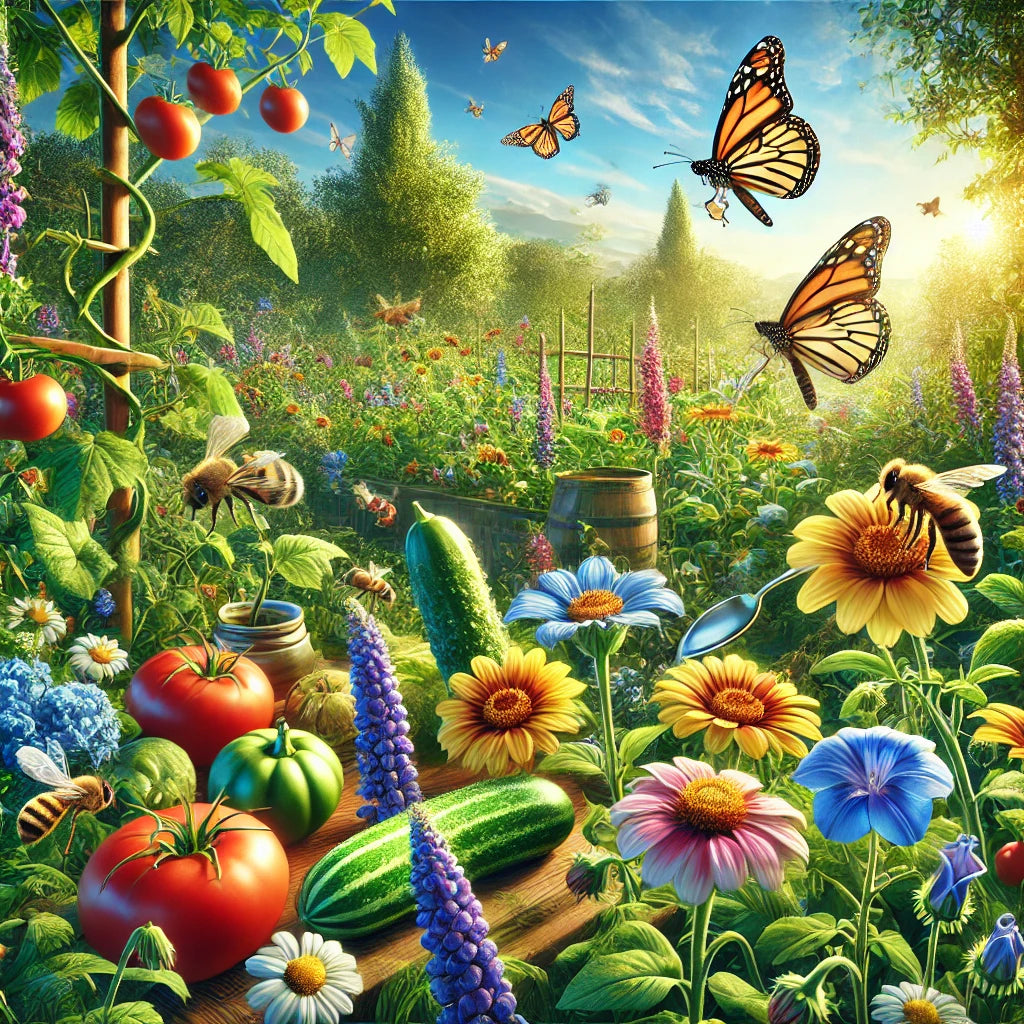Pollinators play a crucial role in the success of your vegetable garden. While bees are the most well-known pollinators, many other species can help your garden flourish. Learning how to create an inviting environment for pollinators will improve your garden's yield and support biodiversity.
Why Pollinators Are Essential for Vegetable Gardens
Pollinators, including bees, butterflies, and birds, transfer pollen from one flower to another, allowing fruits and vegetables to develop. Many garden vegetables like tomatoes, cucumbers, and peppers depend on pollination. Although you might wonder, do bees pollinate vegetables?, the answer is yes. Bees are critical in ensuring successful pollination, making them a gardener's best friend.
Types of Pollinators You Should Attract
While honey bees are among the most efficient pollinators, others such as butterflies, wasps, and birds contribute to pollination. Attracting a variety of pollinators helps diversify your garden ecosystem. Swarm Commander products can even assist with attracting honey bee swarms for optimal pollination.
Creating a Pollinator-Friendly Environment
Your garden needs to be a safe haven to attract pollinators. Plant a variety of native flowering plants that provide nectar and pollen throughout the growing season. Consider strategically placing bee trap attractants to guide bees toward your plants. Creating a habitat with water sources, like a birdbath, will also help keep pollinators around.
Flowers That Attract Bees and Pollinators
Flowers are essential to attracting bees and other pollinators. Some flowers are specifically effective for this purpose. Bees are especially drawn to brightly colored blooms such as lavender, sunflowers, and borage. Learn about the life cycle of bees and incorporate plants that bloom in sync with their foraging habits to maximize pollination in your garden.
How Bees Help Pollinate Vegetables
Understanding the symbiotic relationship between bees and your vegetable garden is key. Why are honeybees so vital to agriculture? Without them, many crops would struggle to develop. They transfer pollen from one flower to another, ensuring vegetables like squash and pumpkins have the nutrients needed to grow.
Using Pollinator-Safe Practices
While it's important to attract pollinators, it's equally essential to protect them. Avoid using pesticides that harm bees and butterflies. Instead, focus on sustainable gardening practices. If you're wondering how to start a bee farm or integrate pollinator-safe practices, products like those from Swarm Commander can provide excellent tools and guidance.
Boost Your Pollination with Swarm Commander
Attracting pollinators to your vegetable garden is not just about better crops—it's about creating a thriving ecosystem. By choosing the right plants, understanding pollinator habits, and using tools like bee trap attractants, you can enhance both your garden’s yield and its contribution to the environment.
Ensure your garden thrives by using Swarm Commander tools and products to attract pollinators like honey bees, supporting your vegetable garden and beyond!
Frequently Asked Questions About Attracting Pollinators to Your Vegetable Garden
Q1. What are the benefits of bees for vegetable gardens?
Bees increase pollination efficiency, which leads to better yields in crops like tomatoes, cucumbers, and beans.
Q2. How can I attract honey bees specifically?
Plant nectar-rich flowers and consider using bee trap attractants to guide bees toward your vegetable garden.
Q3. Do bees pollinate vegetables directly?
Yes, bees are responsible for the pollination of many vegetable plants. Their role in transferring pollen is essential for fruit development.
Q4. What is the best way to provide a water source for pollinators?
Use shallow water dishes or birdbaths in your garden to give bees and butterflies a place to hydrate.
Q5. Can I grow a vegetable garden and a bee-friendly garden at the same time?
Absolutely! Creating a bee-friendly environment will naturally boost your vegetable garden’s productivity.



